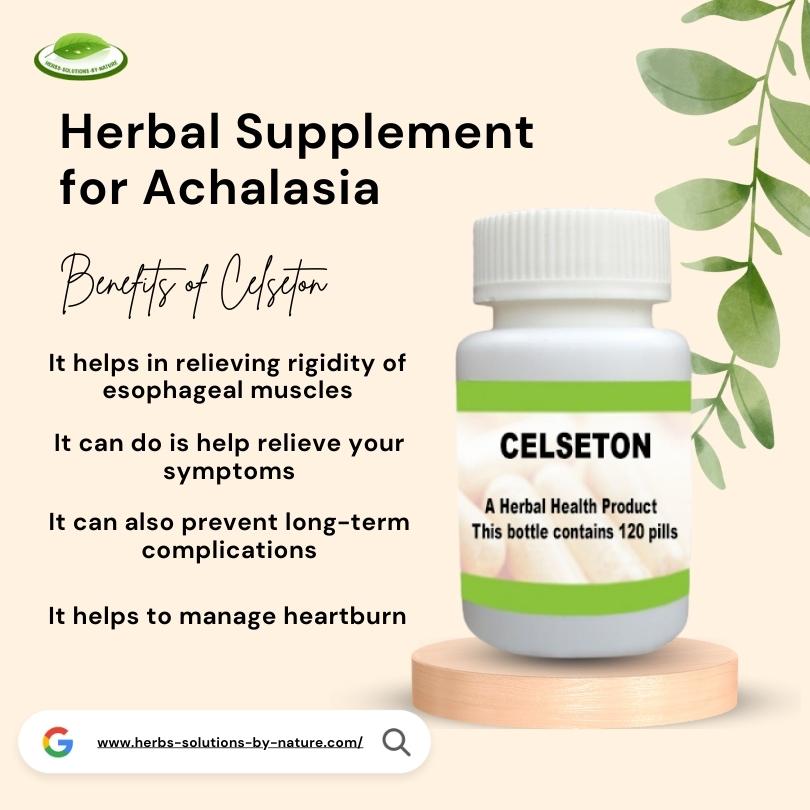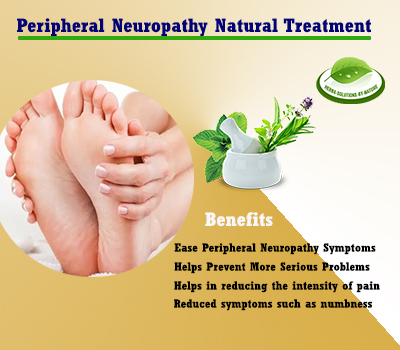Managing Achalasia: Top Natural Treatments to Try

Achalasia is a rare medical condition affecting the esophagus, causing difficulty swallowing food and liquids. It occurs due to damage to the nerves in the esophagus, causing it to lose its ability to relax and allow food to pass through. It can lead to discomfort, pain, and even malnutrition. While several medical treatments are available for managing Achalasia, many people are turning to natural remedies to relieve their symptoms. We will discuss some of the most effective natural treatments for managing Achalasia. So, if you or someone you know is struggling with Achalasia, keep reading to discover the top natural remedies to try.
What is Achalasia?
Achalasia is a rare condition that affects the ability of the esophagus to move food into the stomach. The condition can cause a range of symptoms, including difficulty swallowing, chest pain, and regurgitation of food. While various treatment options are available, many people explore natural remedies before resorting to surgical intervention. One such option is the use of herbal supplements for Achalasia. These supplements can help to soothe the lining of the esophagus, reduce inflammation, and aid in the digestion of food. Some commonly used herbs for treating Achalasia include slippery elm, marshmallow root, and licorice root. Speaking with a healthcare professional before beginning any herbal supplement regimen is essential to ensure it is safe and appropriate for your needs.
Finally, Natural Treatment for Achalasia remains a viable option for those suffering from this painful condition. This treatment addresses the nerve damage in the esophagus that disrupts muscle function in the lower esophageal sphincter and inhibits proper swallowing. While there is no known cure for Achalasia, Natural Treatment has successfully reduced symptoms and promoted quality of life.
Understanding the Natural Treatment Options for Achalasia
Natural Treatment for Achalasia is a hot topic in the medical world, as patients want a more natural approach to managing their condition. Dietary & Lifestyle Changes can have a significant impact; modifying one’s diet can play an important role in reducing the symptoms associated with Achalasia. It includes eating smaller meals throughout the day, avoiding hard-to-swallow foods like bread, meat, and dairy, and drinking plenty of water to assist digestion. In addition to modifying one’s diet, incorporating lifestyle changes like meditation and yoga can aid in reducing stress levels which could further exacerbate symptoms. Natural Treatment for Achalasia focuses on balancing environmental factors and reducing symptoms through diet and lifestyle changes, providing a more holistic approach to managing this condition.
Natural Treatment for Achalasia involves a holistic approach that can complement medical treatments. One natural treatment option for Achalasia is exercise. Gentle exercises, such as walking or yoga, can alleviate symptoms of Achalasia by reducing stress levels and promoting relaxation of the esophageal muscle. In addition to activity, dietary changes can help relieve Achalasia symptoms. Soft and easy-to-swallow foods can be integrated into one’s diet and help minimize discomfort during mealtimes. Furthermore, herbal remedies such as marshmallow root and slippery elm can also soothe the esophagus and improve digestion. Natural treatment for Achalasia aims to provide a comprehensive approach to managing symptoms, which can work hand-in-hand with conventional medical treatment options.
Besides herbal remedies, a Celseton approach to treating Achalasia may also provide relief. These natural treatments can include dietary modifications and relaxation techniques such as yoga and meditation. Herbs such as slippery elm and marshmallow root also offer anti-inflammatory properties that help soothe the digestive tract. Additionally, there are nutritional supplements such as probiotics and glycyrrhizinate licorice that could be beneficial for those suffering from Achalasia. With the right combination of approaches, natural treatments offer those with Achalasia promising relief from their symptoms.
Dietary Changes for Managing Achalasia
Achalasia is a rare disorder that affects the ability of the esophagus to move food into the stomach adequately. This condition is caused by damage to the nerves in the esophagus, which disrupts the normal rhythmic contractions that move food along. While no known cure for Achalasia exists, several natural treatments can help alleviate the symptoms. Eating smaller, more frequent meals throughout the day can help manage achalasia symptoms by reducing the amount of food in the esophagus at one time. Other natural remedies for Achalasia include herbal supplements, acupuncture, and yoga, which can help promote relaxation and reduce stress levels. In more severe cases, surgery may be required to dilate or cut the muscles in the esophagus, but natural treatments should always be considered first.
Natural Treatment for Achalasia is an important topic for those who suffer from this rare esophageal disorder. Consuming soft, easily chewed, and swallowed foods, such as soups, stews, and mashed potatoes, can prevent food from getting stuck in the esophagus. Patients with Achalasia often experience difficulty swallowing, regurgitation of food, and chest pain. While there is no known cure for Achalasia, natural treatments can help alleviate the symptoms. One such treatment is acupuncture, which has been shown to improve esophageal function and reduce symptoms. In addition, practicing relaxation techniques such as deep breathing exercises and meditation can help reduce stress and improve digestion. A holistic approach to managing Achalasia may include diet modification, natural treatments, and stress reduction techniques.
However, avoiding complex foods to chew and swallow, such as tough meats and raw vegetables, can also be an effective natural treatment for Achalasia. By taking the necessary steps to reduce the risk of food becoming stuck in the esophagus, patients can naturally gain control over their condition and further minimize the discomfort associated with Achalasia.
Diet and Other Lifestyle Changes to Manage Achalasia Symptoms
Natural treatment for Achalasia starts with a well-planned diet. The diet for individuals with Achalasia should focus on easy-to-swallow foods that are high in nutrition. Foods with high fiber or high-fat content can exacerbate and bulk up the food in the esophagus. A well-planned diet can help prevent these complications and improve disease symptoms. Natural remedies such as aloe vera juice, chamomile, or licorice root have also been known to relieve Achalasia symptoms and naturally promote digestion. The treatment process with natural remedies generally involves intake or inhalation of these herbs in the form of teas, capsules, or aromatherapy. In addition, lifestyle changes, such as eating smaller and more frequent meals, not lying down after eating, and avoiding acidic or spicy foods, can help alleviate symptoms associated with Achalasia.
Smaller and more frequent meals can certainly help alleviate the symptoms of Achalasia, but for some individuals, additional interventions could be necessary. Although there is no cure for Achalasia, several natural treatments can effectively reduce the symptoms. One such option is herbal supplements for Achalasia. Several herbs, such as ginger, chamomile, and licorice root, have been found to have anti-inflammatory and muscle-relaxing properties that can aid in the management of Achalasia. Additionally, herbal supplements such as marshmallow root have a gummy consistency that can help soothe and coat the esophagus, allowing for easier passage of food. However, it’s vital to consult a healthcare professional before taking any Herbal Supplement for Achalasia to determine the most appropriate dosage and any potential interactions with other medications.
Meanwhile, herbal supplements such as kava root and slippery elm can help to decrease the symptoms of Achalasia in individuals by calming muscle spasms and reducing inflammation. Speaking with a medical professional before taking herbal supplements is essential, as they may interact with other medications and can sometimes cause side effects. Individuals suffering from Achalasia can effectively manage their condition by avoiding high-acid foods and using natural supplements such as kava root and slippery elm.
Exercise Techniques to Help with Achalasia Symptoms
Regular exercise is one of the natural ways to manage Achalasia. Achalasia is a condition that affects the muscles in the esophagus and makes it hard for food and liquids to move into the stomach. Research indicates that routine physical activities such as swimming, running, or even a light walk around the neighborhood can improve muscle relaxation and digestion, enhancing the symptoms of Achalasia. People are adapting to the Celseton way of life, which involves consuming natural remedies derived from plant-based sources to manage various health conditions. Celseton remedies contain natural herbs, roots, and fruits that can benefit people with Achalasia. A regular exercise routine coupled with Celseton remedies can help effectively alleviate Achalasia’s symptoms.
Gentle yoga poses like the downward dog or boat pose can be an excellent way to ease the discomfort associated with Achalasia. However, many other natural remedies can also be considered. One of the most popular natural treatments for Achalasia is an herbal supplement designed to help relieve symptoms. These supplements typically contain herbs that promote healthy digestion and soothe digestive discomfort. While herbal supplements for Achalasia are readily available, it’s essential to talk to a healthcare provider before starting any new natural treatment for Achalasia to ensure that it’s safe and effective for your individual needs.
Additionally, by using natural treatments like breathing exercises such as pranayama or pursed lip breathing, those suffering from Achalasia can reduce the discomfort associated with swallowing. These treatments allow for a physiologic relaxation of the lower esophageal sphincter and could be an effective treatment option in addition to dietary modifications.





